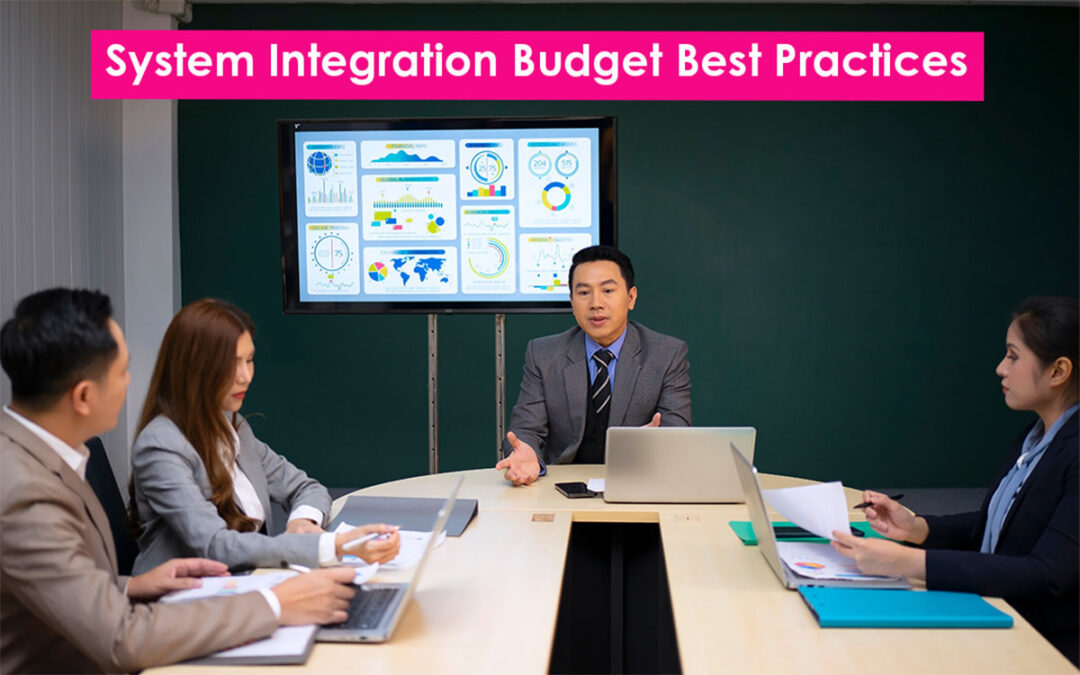System integration can revolutionize your business by streamlining workflows, improving data accessibility, and enabling smarter decision-making. But to unlock these benefits, you need to justify the project with a clear and realistic integration budget. Without one, costs can spiral out of control, and the project may fail to deliver the desired ROI.
Integrate IQ specializes in crafting tailored integration solutions that empower businesses to connect their systems seamlessly. This blog will guide you through the essentials of building an integration budget so you can determine whether your integration project will deliver the necessary ROI.
Understanding ROI: The Foundation of Budgeting
Before diving into numbers, it’s essential to understand the return on investment (ROI) that system integration can deliver. ROI is traditionally calculated as:
ROI = (Net Benefits / Total Costs) x 100%
While this formula provides a baseline for financial evaluation, integration projects often yield both tangible and intangible benefits. For instance, automating workflows may save time while reducing errors and labor costs, while improving customer data insights can enhance customer satisfaction and retention. These benefits, though harder to quantify, are no less impactful.
Beyond ROI: A Holistic Assessment
To ensure your integration delivers value, take these additional elements into account:
- Total Cost of Ownership (TCO): Calculate the full lifecycle costs of the integration, including software, hardware, labor, and ongoing maintenance.
- Total Economic Impact (TEI): Evaluate benefits alongside flexibility and risk to get a complete picture of the integration’s impact.
- Value Measuring Methodology (VMM): Assign value scores to tangible and intangible benefits, balancing both in your decision-making.
These approaches allow you to create a budget that considers both financial returns and the broader value of integration.
Key Components of an Integration Budget
Building an effective budget means accounting for every phase of the integration process. Here’s what to include:
1. Discovery and Planning
The first step in any integration project is understanding your current systems, identifying current challenges and potential opportunities, and defining your objectives. This involves stakeholder meetings, system audits, and identifying gaps or inefficiencies. The planning phase lays the foundation for a smooth implementation, making it a critical component of your budget.
2. Implementation Costs
Implementation encompasses everything from licensing fees for software, consultants, and custom development work. Depending on the complexity of your integration, costs can vary significantly. For example:
- DIY Integrations canbe cost-effective initially but often result in higher costs down the line due to limited scalability, lack of flexibility, and increased maintenance needs.
- Pre-Built Solutions work well for simpler setups but may lack the flexibility to meet unique business requirements.
- Custom Integrations are more expensive upfront but offer tailored solutions that align perfectly with your workflows and long-term goals.
At Integrate IQ, we specialize in custom integrations, ensuring every solution is designed to fit your business like a glove.
3. Compliance and Security
For industries like healthcare and finance, compliance with regulations like HIPAA or GDPR is non-negotiable. Budgeting for security measures and compliance certifications ensures your integration meets legal requirements and safeguards sensitive data.
4. Testing and Training
A successful integration doesn’t end with implementation. Thorough testing is essential to ensure the systems function as intended, while employee training empowers your team to make the most of the new tools.
5. Ongoing Support and Maintenance
Technology evolves, and so do your business needs. Allocating funds for ongoing support ensures your integration remains effective and adapts to future challenges. We refer to this as system continuity.
Cost-Saving Strategies Without Compromising Quality
While integration projects can require significant investment, there are ways to manage costs effectively:
Prioritize High-Impact Systems
Start by integrating systems that deliver the greatest ROI. For example, linking your CRM and ERP can streamline operations and provide immediate value, while other integrations can be phased in over time.
Leverage Existing Resources
Many platforms offer built-in APIs or tools that simplify integration. Using these resources can reduce development costs while still delivering robust solutions.
Working with Vendors
Partnering with experienced vendors like Integrate IQ can help you identify cost-saving opportunities.
Plan for Scalability
Build flexibility into your integration from the start. This minimizes future rework as your business grows or adopts new technologies. Ensure you plan for ongoing support – you will need it as your infrastructure evolves.
Real-World Examples of Budgeting Success
To illustrate the importance of proper budgeting, let’s explore a few scenarios:
Healthcare Provider
A regional healthcare provider faced inefficiencies due to disconnected CRM and patient management systems. By allocating funds for a HIPAA-compliant integration, they reduced administrative tasks by 30% and improved patient response times by 40%. A well-constructed budget helped them achieve ROI within 12 months and serve more patients without increasing staffing costs.
Software Company
A mid-sized software firm struggled with data silos between their CRM and ERP. They invested in a custom integration from Integrate IQ, which streamlined reporting processes, saving 20 hours weekly, and increased closed deals by 15% because they were finally able to provide their sales teams all of the information they need in near real time.
Construction Firm
A national construction company lacked visibility into project timelines. A phased integration approach allowed them to budget effectively while centralizing project data, increasing visibility and cutting reporting delays by 50%.
Steps to Build Your Integration Budget
To create a realistic and effective integration budget, follow these steps:
- Define Objectives: Identify what you hope to achieve through integration, whether it’s improving data accuracy, enhancing customer experiences, or reducing costs.
- Audit Current Systems: Evaluate your existing tools and workflows to determine integration needs.
- Engage Stakeholders: Involve team members across departments to ensure all requirements are considered.
- Consult with Experts: Partner with experienced providers like Integrate IQ to get accurate cost estimates and tailored solutions.
- Allocate for All Phases: Include planning, implementation, testing, training, and ongoing support in your budget.
Why Choose Integrate IQ for Your Integration Project?
Budgeting is only part of the equation. Success depends on selecting a partner who understands your industry, aligns with your goals, and delivers value at every stage. Here’s what sets Integrate IQ apart:
Industry Expertise
We’ve helped businesses in finance/banking, healthcare, software, construction, and more achieve seamless integrations tailored to their specific needs. Our experience ensures we understand the challenges and opportunities unique to your industry.
Transparent Pricing
With Integrate IQ, there are no hidden costs. We provide detailed, itemized pricing up front that allows you to budget confidently and avoid surprises.
Ongoing Support
Our commitment doesn’t end with implementation. We offer long-term support to ensure your integration remains efficient and adaptable as your business evolves.
Proven Results
Our track record speaks for itself: More than 16 billion records transited our integrations in 2023 alone and we have integrated more than 250 different systems to date. From reducing administrative workloads for healthcare providers to improving sales pipeline visibility for software firms, our integrations deliver measurable benefits.
Start Your Integration Journey Today
A well-planned integration budget is the cornerstone of a successful project. By considering all factors—ROI, compliance, scalability, and support—you can ensure your investment delivers long-term value. With Integrate IQ as your partner, you’ll have the expertise, transparency, and results-driven approach needed to achieve seamless integration.
Take the first step today. Schedule a free personal consultation and start building your integration budget with confidence.

